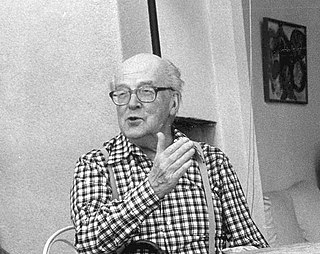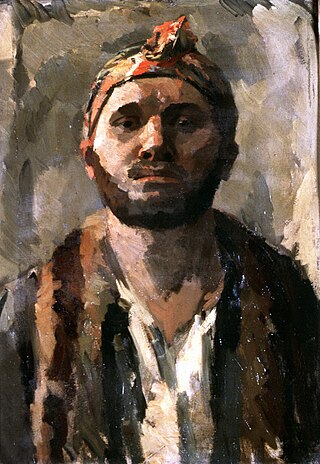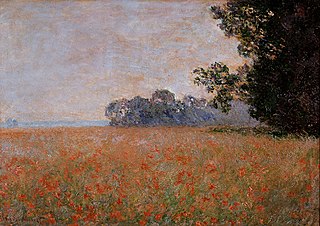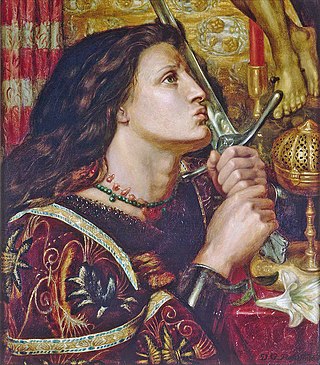
The Musée d'Art Moderne et Contemporain de Strasbourg is an art museum in Strasbourg, France, which was founded in 1973 and opened in its own building in November 1998.

Jean Le Moal was a French painter of the new Paris school, designer of stained glass windows, and one of the founder members of the Salon de Mai.

The Musée des Beaux-Arts de Strasbourg is the old masters paintings collection of the city of Strasbourg, located in the Alsace region of France. The museum is housed in the first and second floors of the baroque Palais Rohan since 1898. The museum displays works by non-Upper Rhenish artists from between the 14th century and 1871 and by Upper Rhenish artist from between 1681 and 1871. The museum owned 1,934 works as of 31 December 2015, this number has substantially increased since. The old masters from the upper-Rhenish area until 1681 are exhibited in the neighboring Musée de l’Œuvre Notre-Dame.

Pierre Jean Baptiste Louis Dumont more commonly known as Pierre Dumont, was a French painter of the Rouen School. He was schooled at the Lycée Pierre-Corneille and subsequently studied painting with Joseph Delattre. Dumont founded the Groupe des XXX (1907), and along with Robert Antoine Pinchon, Yvonne Barbier, and Eugène Tirvert founded the Société Normande de Peinture Moderne (1909). From 1910 to 1916 Dumont lived at the Le Bateau-Lavoir becoming friends with Juan Gris, Max Jacob and Guillaume Apollinaire. He turned towards Cubism during this period and played a crucial role in the organization of the Salon de la Section d'Or at the Galerie La Boétie in Paris, October 1912.

Le Pont aux Anglais, soleil couchant is an oil painting created in 1905 by the French artist Robert Antoine Pinchon (1886–1943). Associated with the new generation of l'École de Rouen Pinchon executed this work in a Post-Impressionist style with a subdued Fauve or Neo-Impressionist palette of golden yellows and incandescent blues. The dynamic image of the train in Pinchon's painting is an homage to the emerging industrialized world.

The Société Normande de Peinture Moderne, also known as Société de Peinture Moderne, or alternatively, Normand Society of Modern Painting, was a collective of eminent painters, sculptors, poets, musicians and critics associated with Post-Impressionism, Fauvism, Cubism and Orphism. The Société Normande de la Peinture Moderne was a diverse collection of avant-garde artists; in part a subgrouping of the Cubist movement, evolving alongside the so-called Salon Cubist group, first independently then in tandem with the core group of Cubists that emerged at the Salon d'Automne and Salon des Indépendants between 1909 and 1911. Historically, the two groups merged in 1912, at the Section d'Or exhibition, but documents from the period prior to 1912 indicate the merging occurred earlier and in a more convoluted manner.

Albert Lebourg, birth name Albert-Marie Lebourg, also called Albert-Charles Lebourg and Charles Albert Lebourg, was a French Impressionist and Post-Impressionist landscape painter of the Rouen School. Member of the Société des Artistes Français, he actively worked in a luminous Impressionist style, creating more than 2,000 landscapes during his lifetime. The artist was represented by Galerie Mancini in Paris in 1896, in 1899 and 1910 by : Galerie Bernheim-Jeune, 1903 and 1906 at the Galerie Paul Rosenberg, and 1918 and 1923 at Galerie Georges Petit.

Tania Mouraud is a contemporary French video artist and photographer.

Jean-Baptiste-Antoine Guillemet was a French renowned landscape painter and longtime Jury member of the Salon des Artistes Francais. He was one of the first 19th-century artists to paint modern life, and a pivotal figure in the transition from Realism to Impressionism.

René Beeh was a German draughtsman and painter from Alsace. He was held in high esteem by his contemporaries and called "the coming genius" by art historian Wilhelm Hausenstein, but with his having died prematurely, he has been mostly forgotten.

The Musée des beaux-arts du Locle, located in the canton of Neuchâtel in the Switzerland, organizes temporary exhibitions three times a year. Showcasing prints, photographs, installations and paintings, solo and thematic exhibitions take place in a 2,000 m2 space. These exhibitions of Swiss and international art, past and present, highlight both emerging and established artists. Open to all techniques and mixed media in particular, MBAL also organises the Triennale de l'art imprimé contemporain .

Still Life with a Sketch after Delacroix is an oil painting by the French artist Paul Gauguin. The undated work is thought to have been painted during the artist's 1887 stay in Martinique. It was bequeathed to the Strasbourg museum by Raymond Koechlin in 1931 and is now on display in the Musée d'Art moderne et contemporain. Its inventory number is 55.974.0.662.

Fruit Bowl on a Table is a circa 1934 still-life painting by the French artist Pierre Bonnard which was bought by the city of Strasbourg in 1995 from the heiresses of Claude Roger-Marx. Today this painting is in the Musée d'Art moderne et contemporain.

Champ d'avoine aux coquelicots is a 1890 landscape painting by the French Impressionist Claude Monet. It is now on display in the Musée d'Art moderne et contemporain of Strasbourg, France. Its inventory number is 55.974.0.683.

The Garden of the Orphanage in Amsterdam is a 1894 painting by German painter Max Liebermann, a figure of Realism, Impressionism, and Post-Impressionism. It is now in the Musée d'Art moderne et contemporain of Strasbourg, France. Its inventory number is 55.974.0.680.

Joan of Arc Kissing the Sword of Deliverance is a 1863 painting by the English artist Dante Gabriel Rossetti. It was bought for the Strasbourg Museum of Modern and Contemporary Art (MAMCS) at the Piccadilly Gallery in 1996, as the first Rossetti painting ever bought by a French museum. Its inventory number is 55.996.8.1.

Three Elements is a March 1925 abstract painting by the Russian artist Wassily Kandinsky.

Gérard Serée, is a French artist, known for his collaborations on producing artists' books.
Martine Aballéa is a French-American artist born in 1950.

















